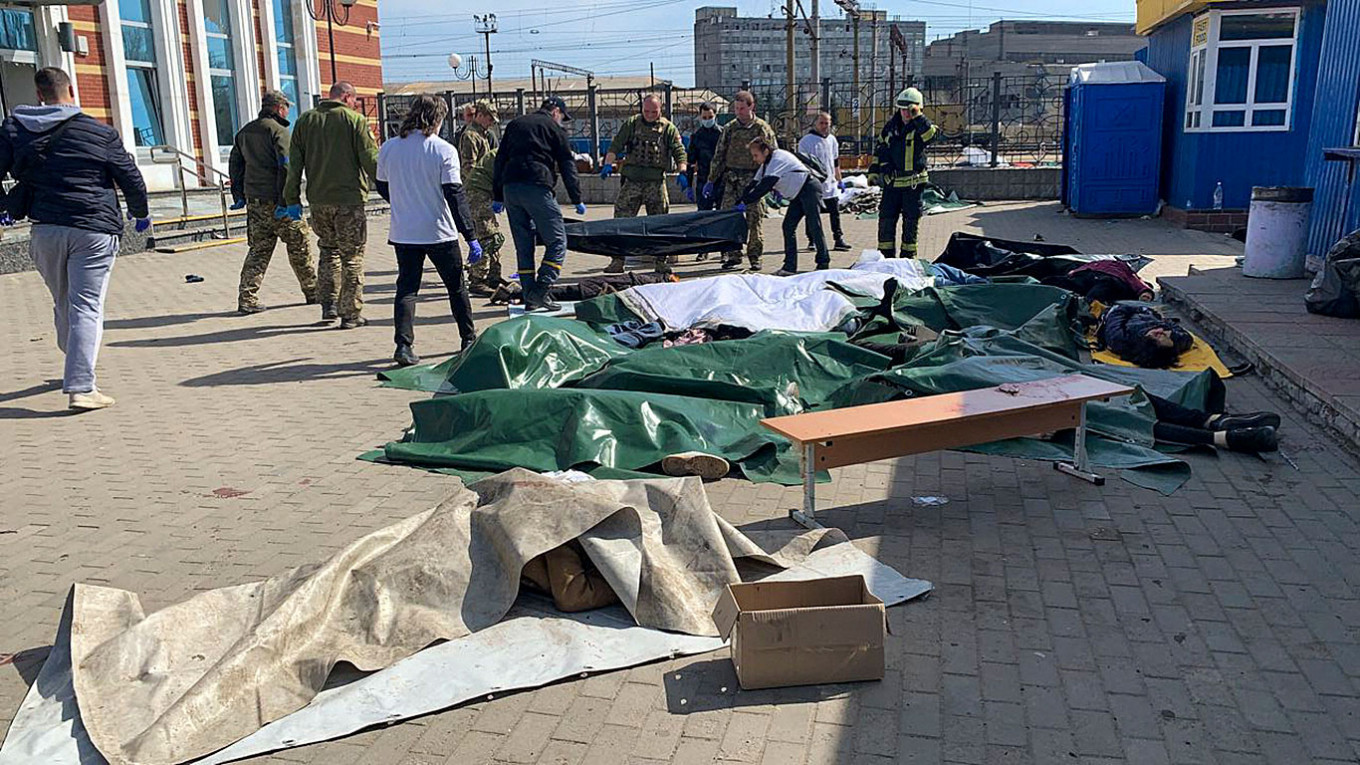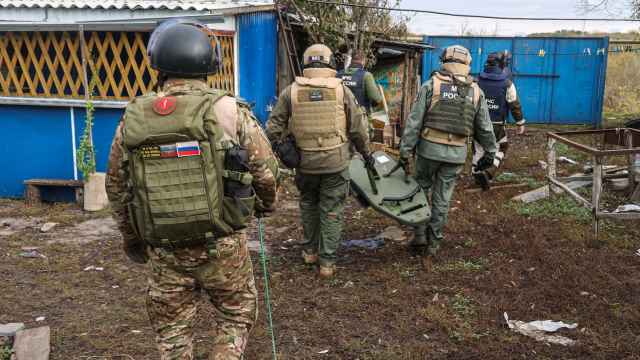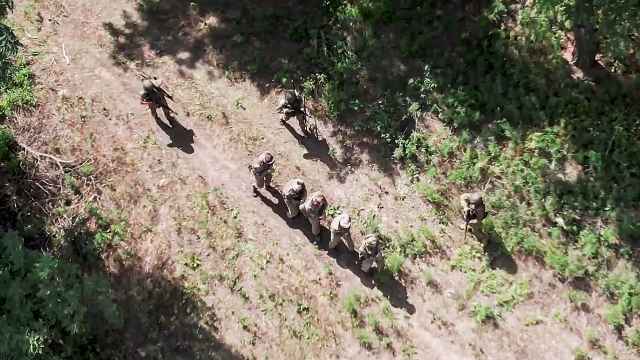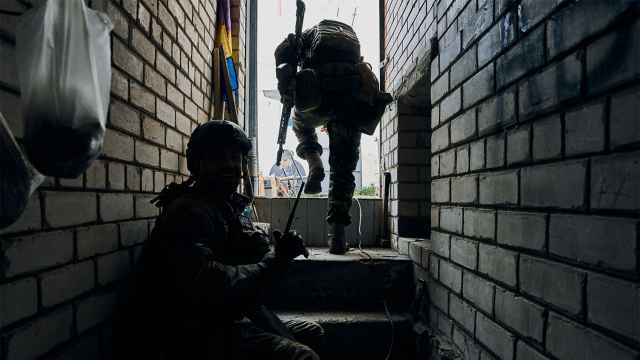Human Rights Watch on Tuesday accused Russia of committing a "war crime" with a missile attack that killed some 60 fleeing civilians at a railway station in eastern Ukraine.
The attack on the Kramatorsk train station in April is one of the deadliest targeting civilians since Russia invaded Ukraine on Feb. 24 last year.
Russia has denied responsibility.
"The evidence strongly indicates that the missile that killed and injured civilians at Kramatorsk train station was launched from Russian-controlled territory in eastern Ukraine," the U.S.-based rights watchdog said in a joint report with SITU Research, a visual investigations practice.
"The attack was a violation of the laws of war and an apparent war crime," it said after an HRW team visited Kramatorsk and studied relevant photo, video and satellite imagery.
HRW said it identified a "possible launch location for the attack" near a formerly Russian-controlled village of Kunie in the eastern Kharkiv region.
On the morning of April 8, 2022, as thousands of civilians rushed to flee the region, a Tochka-U ballistic missile, according to experts armed with cluster munitions, hit the Kramatorsk station, a major hub for evacuations in the region.
The attack left 61 people dead and injured over 160, according to local officials, while HRW says at least 58 people were killed.
Moscow denied it was behind the attack, instead accusing Kyiv of firing at the station to disrupt the evacuation.
But HRW said it "found no evidence to support" Russia's claims.
"On the contrary, all evidence points to Russian forces having fired the Tochka-U missile with cluster munitions on the Kramatorsk train station," it said.
Possible launch location
The NGO said it identified "several locations where Russian forces have apparently deployed Tochka missiles systems in Ukraine" since the start of the invasion.
Near the village of Kunie, satellite imagery captured mid-April showed "several large rectangular containers," whose shape, size and color correspond to those used to transport Tochka missiles.
HRW also quoted residents of the village as describing "significant Russian military activity in and around the village in early April, including the firing of munitions."
During a visit to Kunie in January, several months after it was retaken by Ukrainian forces, HRW said it saw fragments of a Tochka missile and "multiple unexploded...submunitions," although it could not verify where it was fired from.
Together with witness testimony, "this evidence strongly indicates that Russian forces had Tockha launch vehicles... and Tochka missiles in the area around Kunie village around the time of the attack in Kramatorsk," HRW said.
HRW also said that it found "no evidence" the train station was used for military purposes at the time.
"The unlawful nature of the Kramatorsk attack, the evidence of a large civilian presence without a significant military objective and the use of an inherently indiscriminate weapon indicate that the Russian military commander and personnel who ordered and carried out the attack were committing a war crime," the NGO said.
A Message from The Moscow Times:
Dear readers,
We are facing unprecedented challenges. Russia's Prosecutor General's Office has designated The Moscow Times as an "undesirable" organization, criminalizing our work and putting our staff at risk of prosecution. This follows our earlier unjust labeling as a "foreign agent."
These actions are direct attempts to silence independent journalism in Russia. The authorities claim our work "discredits the decisions of the Russian leadership." We see things differently: we strive to provide accurate, unbiased reporting on Russia.
We, the journalists of The Moscow Times, refuse to be silenced. But to continue our work, we need your help.
Your support, no matter how small, makes a world of difference. If you can, please support us monthly starting from just $2. It's quick to set up, and every contribution makes a significant impact.
By supporting The Moscow Times, you're defending open, independent journalism in the face of repression. Thank you for standing with us.
Remind me later.






